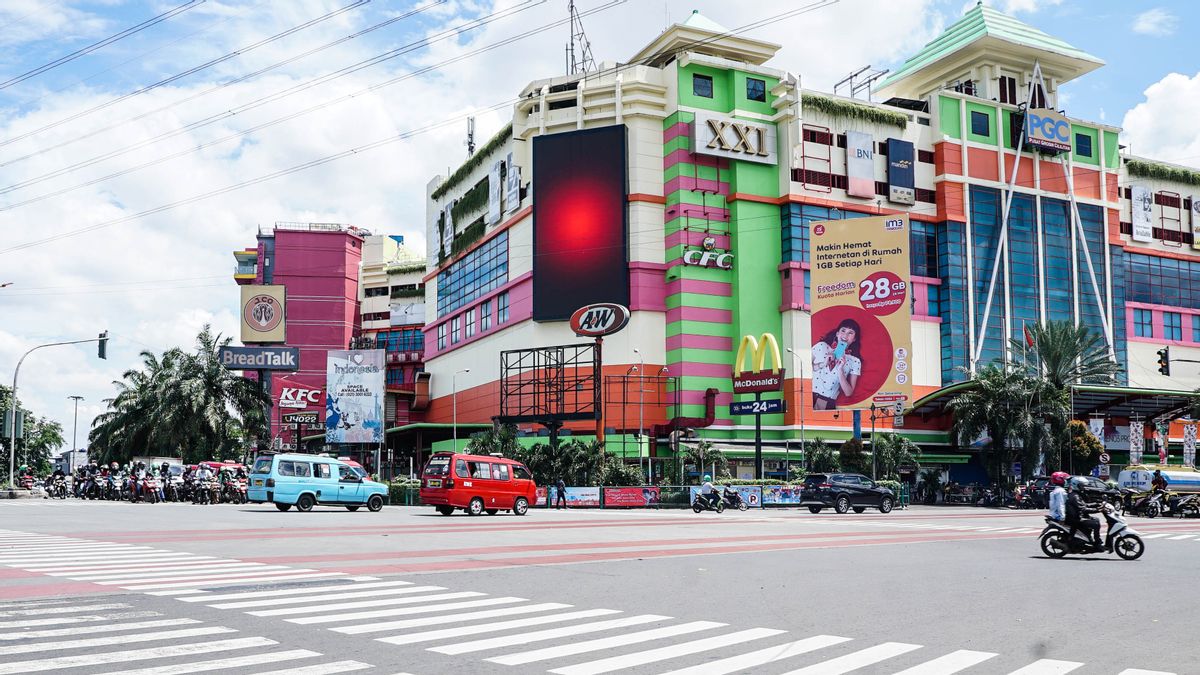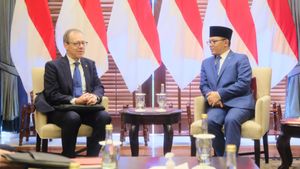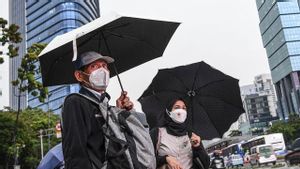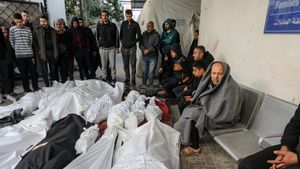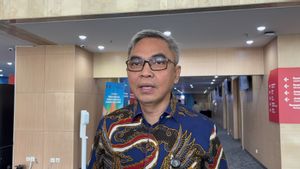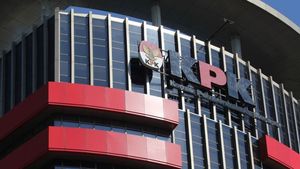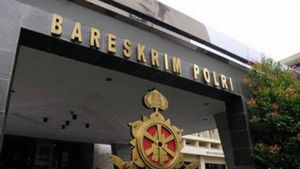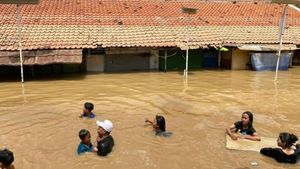JAKARTA - Last night, Health Minister Terawan Agus Putranto signed a large-scale social restrictions (PSBB) letter to the DKI Jakarta Province. Today, the letter was sent to DKI.
That means, DKI Jakarta Governor Anies Baswedan is ready to tighten his belt at work. Anies will add tighter policies in handling the COVID-19 outbreak.
"(The policy) is entirely with Governor Anies Baswedan, monggo is regulated according to his ability in DKI as a whole. Then the permit has been granted," said the Head of Media and Public Opinion Division of the Ministry of Health, Busroni, when contacted, Tuesday, April 7.
The approval of the Jakarta PSBB status, said Busroni, was based on the considerations of the Ministry of Health team and the Task Force for the Acceleration of Handling COVID-19. Aspects reviewed include epidemiological studies, political, economic, social, cultural, religious, defense and security aspects.
Busroni said, Terawan advised Anies to make policies that must prioritize the safety and lives of the citizens of DKI.
"All (policies) have no meaning when we cannot save humans, in this case the population. The message is that. Number one is that people are saved," he explained.
In carrying out the PSBB policy, Anies must refer to the Minister of Health Regulation (PMK) Number 9 of 2020 which regulates the implementation of the PSBB. Restricted activities are regulated in Article 13.
This article states, when a region has received the PSBB status, there are restrictions that are made as follows:
1. school and work vacations
2. restrictions on religious activities
3. restrictions on activities in public places or facilities
4. restrictions on social and cultural activities
5. restrictions on the mode of transportation
6. restriction on other activities specifically related to defense and security aspects.
Who remains operational
School and workplace vacations are exempted for strategic offices or agencies that provide services related to defense and security, public order, food needs, fuel oil and gas, health services, economy, finance, communications, industry, export and import, distribution, logistics, and other basic necessities.
Restrictions on transportation modes are exempted for passenger transportation modes, both public and private, by taking into account the number of passengers and maintaining the distance between passengers, as well as modes of transportation of goods by taking into account the fulfillment of the basic needs of the population. Meanwhile, several business fields that may operate include:
1. Stores dealing with foodstuffs and goods or basic needs as well as essential goods, which include food, among others: rice, soybeans, chilies, shallots, garlic, onions, sugar, cooking oil, wheat flour, fruit -materials and vegetables, beef, chicken meat, chicken eggs, fish, milk and dairy products, and bottled drinking water.
Then includes food stalls / restaurants / restaurants, as well as important items which include seeds, livestock seeds, fertilizers, pesticides, drugs and vaccines for livestock, animal feed, LPG gas, plywood, cement, construction steel, and mild steel.
2. Banks, insurance offices, payment system operators, and ATMs, including ATM filling vendors and IT vendors for banking operations, banking call centers and ATM operations.
3. Print and electronic media.
4. Telecommunications, internet services, broadcasting and cable services. As far as possible, efforts are made to work from home for IT and IT-enabled Services (for essential services), except for the mobility of telecommunications providers, telecommunications / IT vendors / suppliers, and data infrastructure providers.
5. Delivery of all foodstuffs and food items or staple goods as well as essential items including food, medicine, medical equipment.
6. Gas stations, LPG, retail outlets and Oil and Gas storage.
7. Power plants, transmission and distribution units and services
8. Capital market services as determined by the Jakarta Stock Exchange.
9. Freight forwarding services, including application-based two-wheeled transportation with restrictions only for transporting goods and not for passengers
10. Cold storage and warehousing services (cold storage).
11. Personal security services. Security offices should work with a minimum number of employees and maintain a priority on preventing the spread of disease (breaking the chain of transmission) according to workplace protocols.
The English, Chinese, Japanese, Arabic, and French versions are automatically generated by the AI. So there may still be inaccuracies in translating, please always see Indonesian as our main language. (system supported by DigitalSiber.id)
